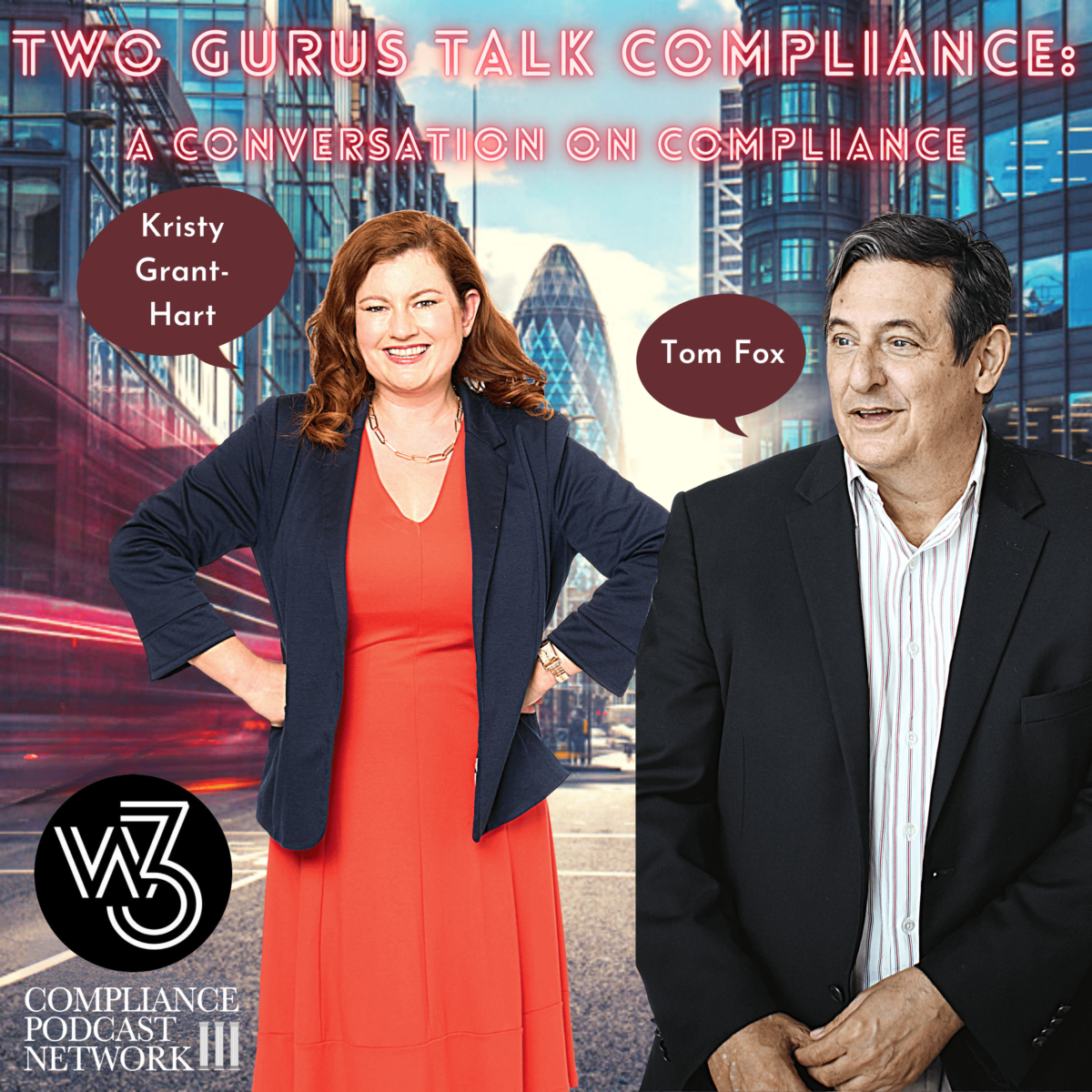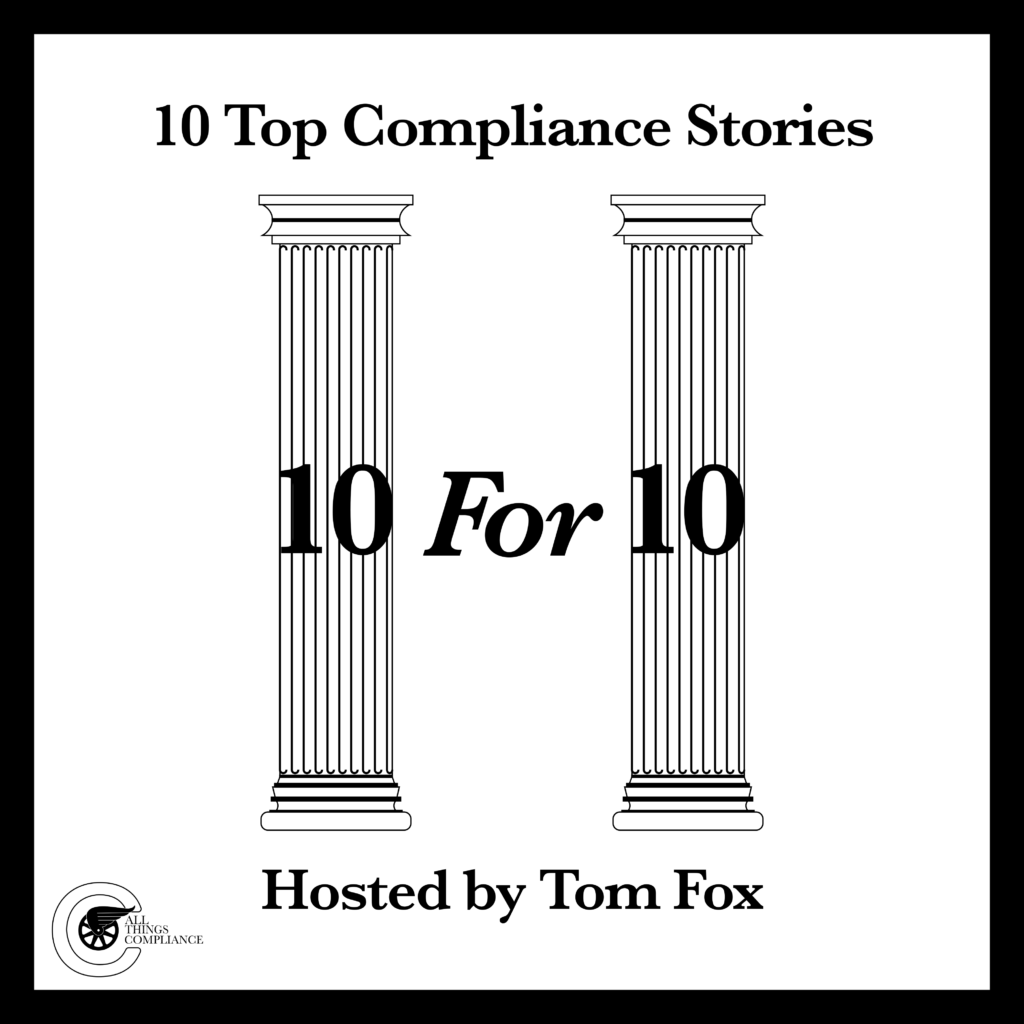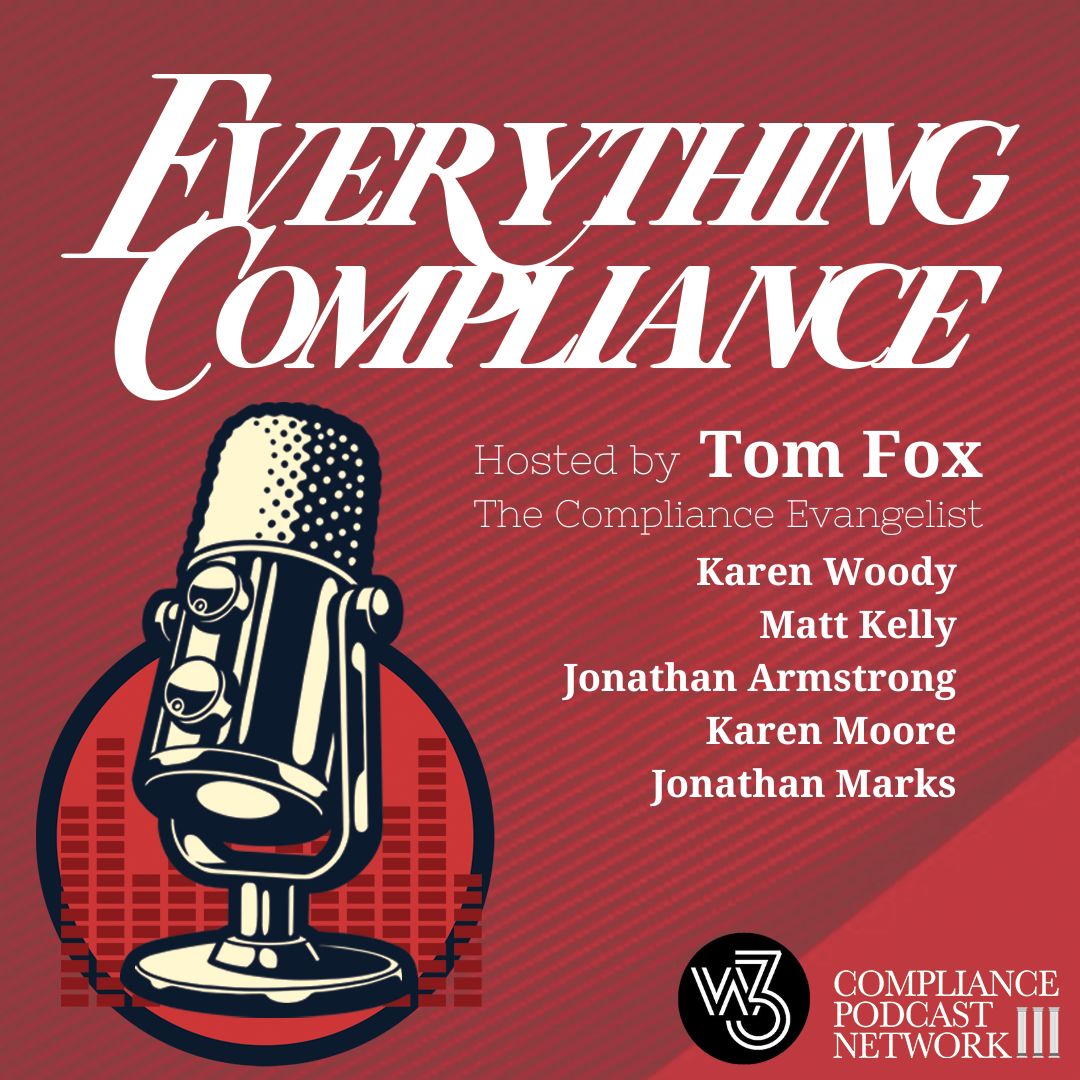Welcome to the only roundtable podcast in compliance as we celebrate our second century of shows.
In this episode, we have the quartet of Matt Kelly, Jonathan Marks, and Karen Moore; with host Tom Fox wearing a double hat as a commentator as well. We take up Root Cause Analysis, DEI questions in the Boeing monitorship, failures at TD Bank and a possible Caremark claim.
1. Matt Kelly takes a look into the commercial strategies which led to the compliance failures at TD Banks. He rants about the Boston’s National Women’s Soccer League team (now deleted) advertising campaign announcing the new team with the tagline ‘too many balls’.
2. Jonathan Marks explains the differences in a Root Cause Analysis and investigations. He shouts out the WNBA and the person who solved the Golden Owl puzzle.
3. Karen Moore takes a deep dive into the district court’s request for more information on the impact of DEI on the Boeing monitorship. She rants about non-civility in the Supermarkets of America’s Parking Lots.
4. Tom Fox takes a look at the potential Caremark claim against TD Bank for both Directors and Officers failures in their duties. He shouts out to GOP dominated Texas Legislature for subpoenaing Robert Roberson for an appearance before the House, one day before his scheduled execution and the Texas Supreme Court for staying his execution until he could appear.
The members of the Everything Compliance are:
The host and producer, rantor (and sometime panelist) of Everything Compliance is Tom Fox the Voice of Compliance. He can be reached at tfox@tfoxlaw.com. Everything Compliance is a part of the award-winning Compliance Podcast Network.
Additional Resources:
1. Jonathan Marks on Root Cause Analysis on LinkedIn.
2. Matt Kelly on TD Bank’s Enforcement Action on Radical Compliance.
3. Tom Fox on the potential Caremark claims in the TD Bank case on the Compliance Podcast Network blog.












